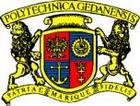












































 Gdansk University of Technology: "manufacturer" of inventions
Gdansk University of Technology: "manufacturer" of inventionsScientists from Gdansk University of Technology (PG) presented about 50 inventions and solutions at this year's Technicon Innovation Fair in Gdańsk. "All of our inventions we have already been submitted to the patent office and are at an early stage of commercialisation" – M.Sc. Damian Kuźniewski, head of Industrial Cooperation Department told.
"The device is used for energy management. Its design allows to increases the efficiency of energy facilities when applied to small power outputs, such as wind power - explained Kuźniewski. - The solution is already used and proven in the market."
Another project already tested and used in the market, among others in the Gdańsk Science and Technology Park, is an intelligent video surveillance system developed by Prof. Czyżewski, Faculty of Electronics, Telecommunications and Informatics (WETI)".
Gdansk University of Technology also presents its inventions abroad. At Brussels Innova 2009 the Multimedia Systems Department received gold medals with distinction awarded for an aromatic computer interface for polysensory stimulation, which plays an important role in therapy and education of children with developmental disorders, and for the system of controlling a computer with gestures, allowing contact-free computer use.
"This year's Gold Medal at the International Exhibition of Inventions Concurse Lepine (France) has been awarded to USTO-MYSZ (mouth-mouse) Computer Interface, developed by a team led by Prof. Dr. Eng. A. Czyżewski (WETI)" - added Kuźniewski.
In 2009, more than 70 patent applications were submitted to the University’s Industrial Cooperation Department. Kuźniewski estimates that this year there will be even more implementations of patented inventions than last year because of the university’s pro-invention approach.
One reason for this approach a change in state policy regarding universities and higher education reform, according to which each university should have its own rules of managing industrial property rights, and statutory changes are to contribute to effective commercialisation and implementation of scientific research.
According to PARP report 2009, "Academic entrepreneurship (the development of spin-offs, spin-outs) - the need for trainings contributing to its development", growing importance of universities and scientific institutions for economic development has been observed worldwide since mid-20th century.
"The traditional model of university considered technology commercialisation a side effect, far from core mission, at best tolerated in the academic circles" - stated the report.
American universities, such as the Massachusetts Institute of Technology (MIT) and Stanford University started the escape from the traditional model.
Currently, knowledge-based companies are being established around universities in the United States. These companies are supported by the private sector, and established by students and academic staff. MIT, considered the best technical university in the world, has more than 4,200 ‘graduate’ companies.
According to the report, in Poland there are currently no "bridges" connecting market reality with the reality an university. "The beginning of bridges are the organizations that already operate between science and business, such as technology transfer centres, university business incubators, technology incubators" - as written in the document.
Gdansk University of Technology participates in and develops cooperation with cluster in Pomerania, and companies associated with the university are being established. "Since the university itself does not conduct business activity, it is important to establish new businesses at a high intellectual level, independent from the university, which will generate employment and income" - explained Kuźniewski.
Companies that are formed by universities may be independent, with its own source of funding, or financially associated with the university, or managed by the university. Depending on the solution, the university has a smaller or greater impact on the projects.
"Such companies are spin-offs, to which the university contributes intellectual property, and the owner and provides equity and ensures the sale of inventions - said Kuźniewski, - Naturally, the university may own shares in such company and be therefore entitled to additional profits from the sale."
University inventions can be commercialised in several ways. The easiest way is to sell the whole idea for adequate money, without any rights to the idea in the future. It is also possible to grant an exclusive (i.e. to one company) or non-exclusive license, which allows the granting of sublicenses to contractors. A license gives the rights to manufacture the invention, but the university is still its owner.
"Every license agreement brings money - said Kuźniewski. - At our university, the number of granted licenses is growing from year to year, although it still is not comparable with European universities. On average, we also have one spin-off company a year."
Asked if the cooperation with industry is profitable, head of Industrial Cooperation Department confirmed.
He noted that such cooperation provides funds for research and knowledge for scientists, who are up to date with the industry, which allows them to more easily adapt to the market needs. Such cooperation also has educational value, resulting in better educated students - they can gain practical knowledge, which may result in innovative papers. "Working with large companies contributes to promoting the university and helps in obtaining research grants" - he added.